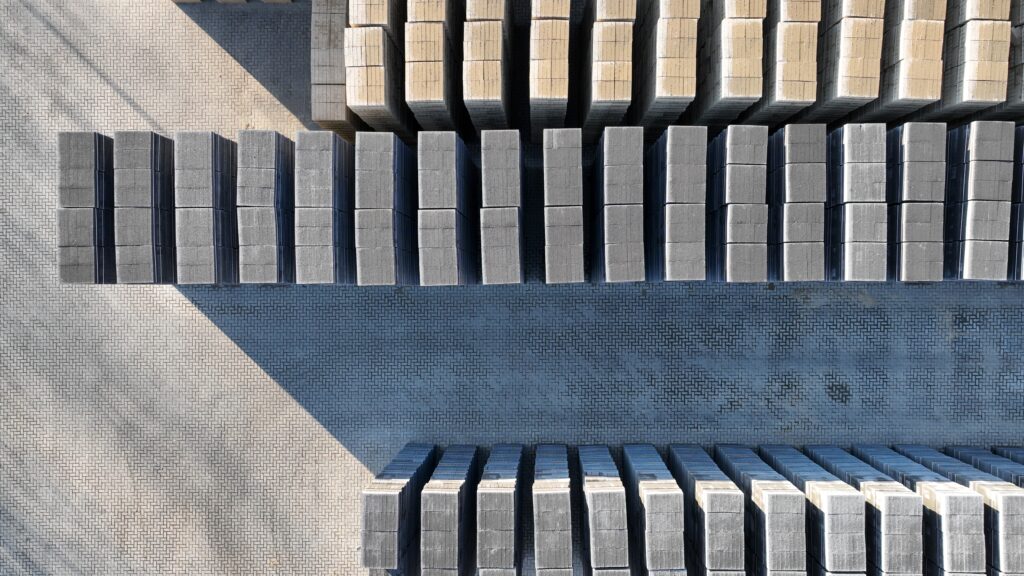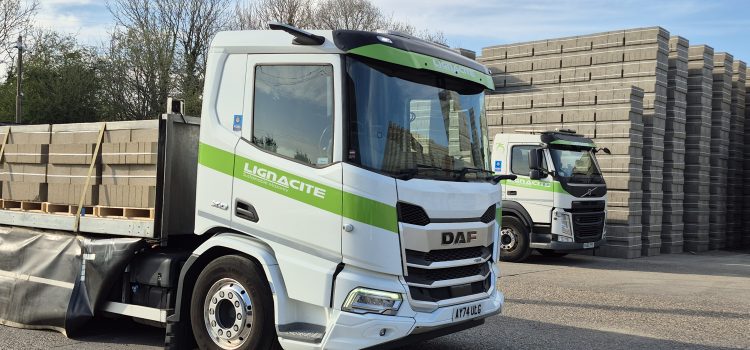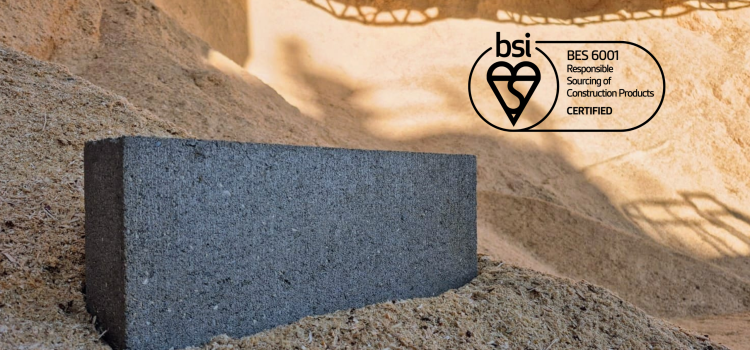Articles
The frost resistance of concrete blocks

Posted by Nick Franks
Living and working in the UK means the weather is never far from our minds. And this becomes even more important when frost is likely. In this article, we explore whether concrete blocks are frost resistant, the properties you should look for and the key factors that can affect the risk of damage.
Are concrete blocks frost-resistant?
Concrete blocks can be frost-resistant, but not all are made the same. Blocks with a minimum density of 1,500 kg/m³ and a compressive strength of 7.3 N/mm² perform well in freezing conditions. Here at Lignacite, our Lignacite GP and Lignacrete blocks are frost-resistant and can be used for external walls, both above and below ground. As long as these blocks are installed correctly, kept free from excessive moisture, and protected from chemical damage, their frost resistance should remain stable over time.
What effect does frost have on concrete blocks?
Frost when combined with the risk of saturation, has the potential to have a disruptive influence on building materials. This usually occurs when water absorbed by a material freezes and expands. If the expansion cannot be accommodated within the material, its integrity is compromised.
Concrete blocks used in high exposure conditions which are subject to freeze-thaw cycling, such as external walls above and below ground, are a proven solution and can be expected to provide reliable service throughout the lifetime of a structure. The recommendations for block quality to achieve this performance are based on a minimum density and level of compressive strength. This specification is derived through the long-term experience of using blocks below ground.
If you use medium-dense and dense concrete blocks and install them correctly, they should remain undamaged for many years. Our Lignacite GP and Lignacrete ranges are suited to these applications for both residential and commercial buildings.
Does concrete contract in the cold?
Yes, like most materials, concrete contracts as it cools. The amount of contraction is usually negligible in most cold weather conditions. If the blocks are more than 150mm below ground, temperatures do not vary much, meaning it is even less likely that the blocks will move.
Does frost damage concrete?
Yes, frost can damage concrete. Since concrete is porous, it can absorb water. When temperatures drop, this water freezes and expands, creating internal pressure within the concrete. This pressure can lead to cracks and surface deterioration. Any pre-existing defects in the concrete heighten the risk of frost damage, as they provide access for water.
However, the use of appropriate, quality concrete blocks that are laid according to the manufacturer’s instructions should not suffer from damage.
Will frost damage mortar?
Yes. When mortar is exposed to freezing temperatures, it can lose bond strength, which weakens a wall’s structural integrity. If newly placed mortar freezes before it has a chance to harden and develop sufficient strength, it can crack, crumble or scale. Additionally, mortar sets slowly in cold conditions, and cement hydration essentially stops below 3°C, resulting in reduced strength.
As such, the frost resistance of masonry work is dependent on the use of a suitable mortar mix. Guidance on which mortar mixes are suited to resist frost action are available from several sources, including masonry guidance document PD 6697. For use below ground, when subject to a high or low risk of saturation with freezing, a compressive strength Class M6 mortar is recommended. This is equivalent to a designation (ii) mix, for example, a 1:1⁄2:4 to 41⁄2 cement: lime: sand.
What is the lowest temperature that concrete blocks can withstand?
Dense concrete blocks can generally withstand freezing temperatures. As such, they are used in building projects around the world, including in Scandinavian countries where temperatures can drop below -40℃.
Factors that impact the frost resistance of blocks
Saturation of masonry
If concrete blocks or masonry are saturated with water, they are more likely to absorb moisture. When that water freezes, it can expand and cause structural damage. As such, it’s important to use medium-dense or dense concrete blocks for walls around the DPC level, where water may accumulate for long periods of time.
Exposure to wind-driven rain
If exposure is likely to be severe, ensure the blocks used have a minimum density of 1,500kg/m3 and compressive strength of at least 7.3N/mm2, such as our Lignacrete range.
Localised protection
If walls are protected from the elements by other buildings, the natural environment, roof overhangs, copings or capping, frost damage can be limited.
Finishes
Painted or decorated blockwork is at increased risk of frost damage because it can trap moisture. Always use a finish recommended by the manufacturer.
Density
As previously stated, concrete blocks must have a density of at least 1,500k/m3 to be frost-resistant.
Compressive strength
LABC and NHBC guidelines state that compressive strength should be 7.3N/mm2 if blocks are used for external walls and exposed to frost.
Application
If used below the DPC, blocks should meet the BS EN 771 standard and have a minimum density of 1,500 kg/m³ or a compressive strength of 7.3 N/mm². If there is a high level of sulfates in the ground, standard blocks will be able to offer some resistance. However, this will depend on the amount of sulfates present in the ground. It is advisable to discuss the use of blocks in aggressive soils with the block producer.
Laying concrete blocks in the cold
When laying concrete blocks in cold weather, special precautions are essential to maintain the quality and durability of the project. Generally, it's recommended that you avoid laying blocks when temperatures drop below 3°C unless special precautions are taken.
Concrete masonry units and mortar must be stored properly to shield them from moisture and freezing conditions. If they freeze, they may be damaged. It's also crucial to mix mortar at temperatures above 4°C to ensure it bonds correctly and sets as intended.
Before beginning work, it's important to clear the construction site of ice and snow. Thermal blankets or temporary enclosures can help keep the temperature above freezing while construction is underway. Concrete blockwork should never be laid on frozen surfaces, because this can negatively affect the structural integrity of the build.
Find the right frost-resistant block for your project
If you're planning to use concrete blocks for your next construction project, get in touch with our team today. We can answer any questions you may have about the properties of our products and help you choose the right specification to meet your needs. Whether you're looking for solid or hollow blocks, our Lignacrete range offers excellent frost resistance. Call us today to find out more.






















